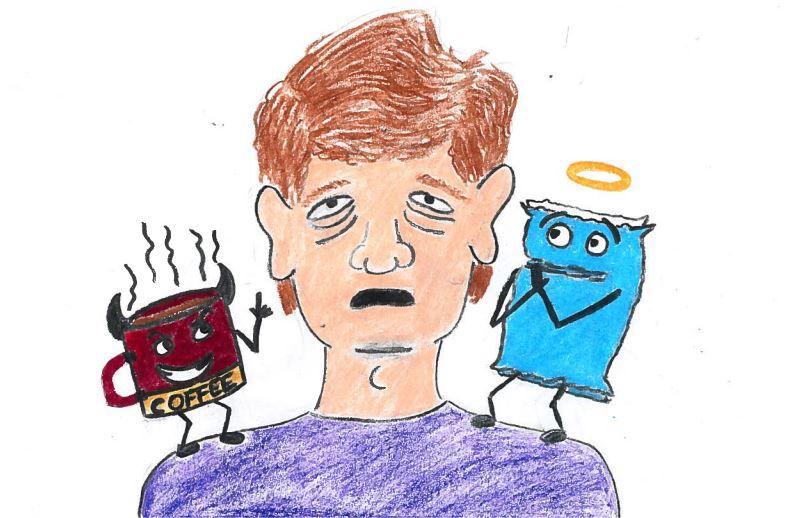According to a 2016 Chegg study, an online textbook rental company, fewer than 16 percent of college students surveyed said they get the recommended eight hours of sleep per night. Roughly 80 percent of students surveyed said they get only five to seven hours a night.
Sleep deprivation has become somewhat of a competition on college campuses. Many students boast about surviving a 10-hour school day on merely 20 minutes of shut-eye and an iced coffee. Sit down in any college classroom and expect to overhear someone bragging about how little they slept the previous night while cramming for the day’s exam.
College life demands an enormous amount of time and dedication to succeed. Between attending lectures, studying, working and trying to squeeze in a social life, there is little time for other activities. Sleep is often pushed to the background only to become an optional activity for when there is nothing more appealing or necessary to do.
We must take charge of our mental and physical health by prioritizing sleep and recognizing its impact on our quality of life. The effects of a chronic lack of sleep within college students are alarming and, according to recent studies, potentially deadly.
Long-term sleep deprivation is linked to an increase in health complications like cardiovascular disease, diabetes, obesity and shortened life expectancy. The Division of Sleep Medicine at Harvard Medical School found that people who often sleep fewer than six hours per night are more likely to have a higher body mass index than people who sleep more than six hours nightly. Sleep deprivation, along with late-night Sonic runs and dollar pizza slices, could be one of the hidden culprits contributing to the infamous “freshman 15” and a host of other health problems college students experience.
The negatives implications of sleep deprivation go far beyond the physical aspects. Because many college students lead such fast-paced and high-stress lifestyles, healthy sleeping habits are critical in maintaining mental wellbeing. However, many college students skimp on sleep and are left feeling both physically and mentally drained.
Lack of sleep can not only cause grouchiness and irritability, but also a heightening of mental illness symptoms correlated with depression and anxiety. Sleep deprivation is also associated with an increased risk of developing these mental illnesses.
It can be difficult maintaining complete mental stability when working on caffeine, minimal sleep and the fear of failing driving you forward. Sleep is certainly not the absolute solution to preventing mental distress, but lack of it can often be one of the causes.
Prolonged lack of sleep is also damaging to college student’s academic performance. A 2017 study by the Sleep Health Institute and Division of Sleep and Circadian Disorders found people with irregular sleep patterns are more likely to have a lower GPA than their counterparts with more regular sleep schedules.
Though it may seem like pulling all-night study sessions regularly will help the chances of doing well on exams, it will likely do the opposite. Research shows even short-term lack of sleep can have negative effects on judgment, memory and cognitive functions. Mental fogginess can even lead to serious accidents and injury.
If we continue this path of sleep deprivation, it is likely we will burn ourselves out before we are ever able to shine in the world. It is time for college students to reclaim their mental and physical health by choosing sleep over trying to do and achieve it all.
Hannah Kleinpeter is a 20-year-old mass communication junior from Baton Rouge, Louisiana.





